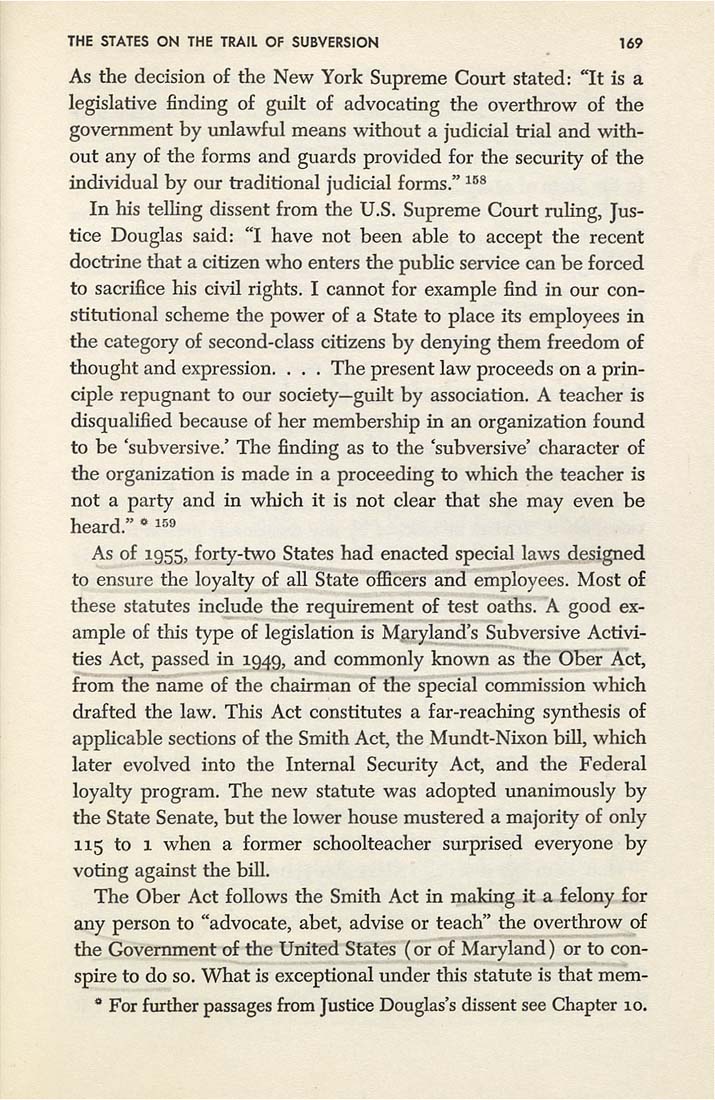THE STATES ON THE TRAIL OF SUBVERSION 169
As the decision of the New York Supreme Court stated: "It is a
legislative finding of guilt of advocating the overthrow of the
government by unlawful means without a judicial tiial and with¬
out any of the forms and guards provided for the security of the
individual by our tiaditional judicial forms." ^"^
In his telling dissent from the U.S. Supreme Court ruhng, Jus¬
tice Douglas said: "I have not been able to accept the recent
doetiine that a citizen who enters the pubhc service can be forced
to sacrifice his civil rights. I cannot for example flnd in our con¬
stitutional scheme the power of a State to place its employees in
the category of second-class citizens by denying them freedom of
thought and expression. . . . The present law proceeds on a prin¬
ciple repugnant to our society—guflt by association. A teacher is
disqualified because of her membership in an orgaruzation found
to be 'subversive.' The finding as to the 'subversive' character of
the organization is made in a proceeding to which the teacher is
not a party and in which it is not clear that she may even be
heard." " ^^^
As of 1955, forty-two States had enacted special laws designed
to ensure the loyalty of afl State officers and employees. Most o£
these statutes include the requirement of test oaths. A good ex¬
ample of this type of legislation is Mjiryland's Subversive Activi¬
ties Act, passed in 1949, and commonly known as the Ober Act,
from the name of the chahman of the special commission which
drafted the law. This Act constitutes a far-reaching synthesis of
appHcable sections of the Smith Act, the Mundt-Nixon bifl, which
later evolved into the Internal Security Act, and the Federal
loyalty program. The new statute was adopted unanimously by
the State Senate, but the lower house mustered a majority of only
115 to 1 when a former schoolteacher surprised everyone by
voting against the bill.
The Ober Act follows the Smith Act in making it a felony for
any person to "advocate, abet, advise or teach" the overthrow of
the Government of the United States (or of Maryland) or to eon-
spire to do so. What is exceptional under this statute is that mem-
" For further passages from Justice Douglas's dissent see Chapter 10.
|








